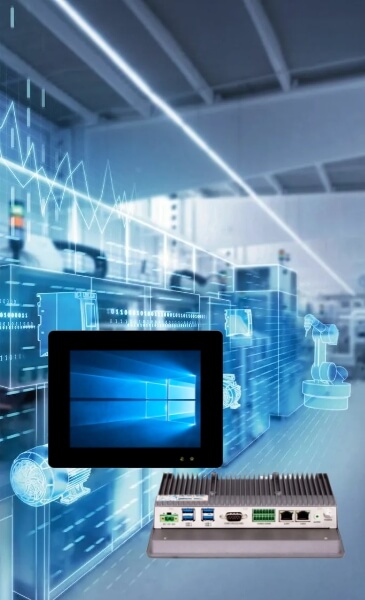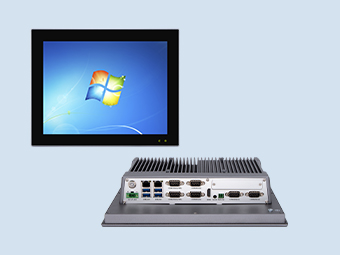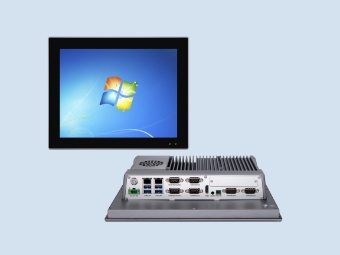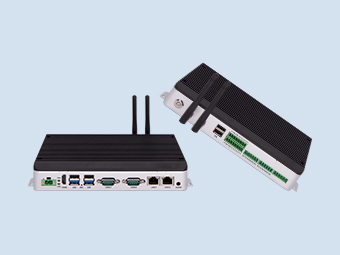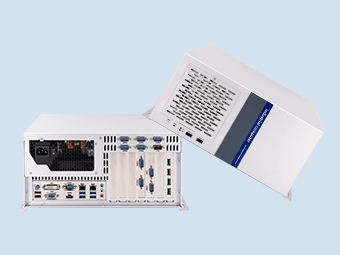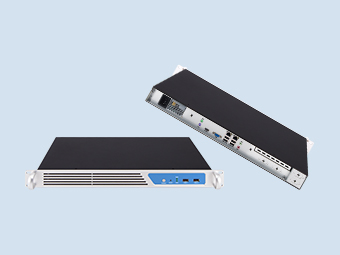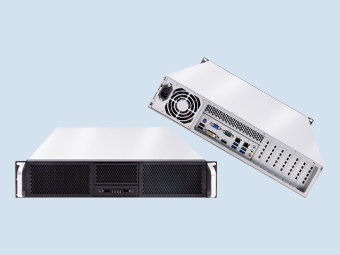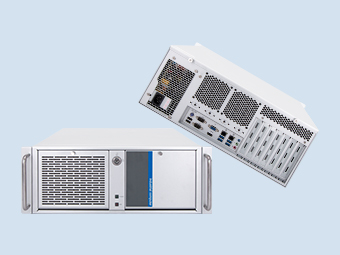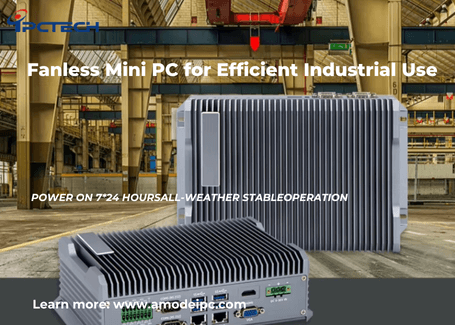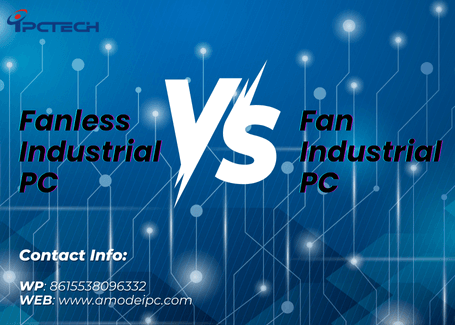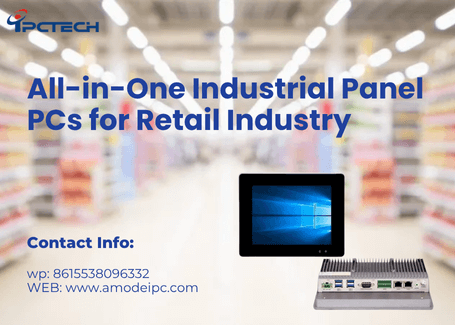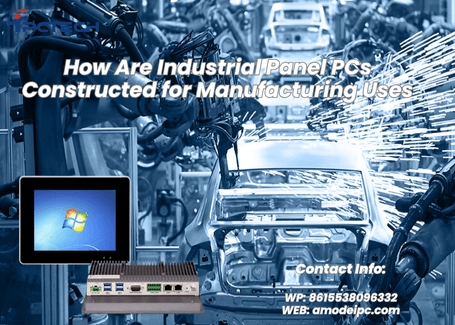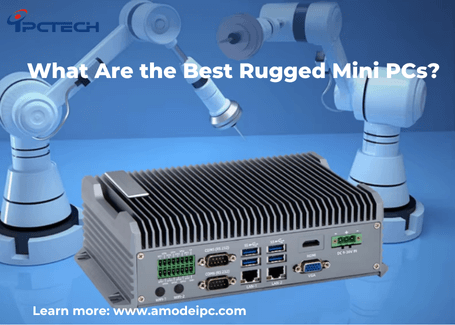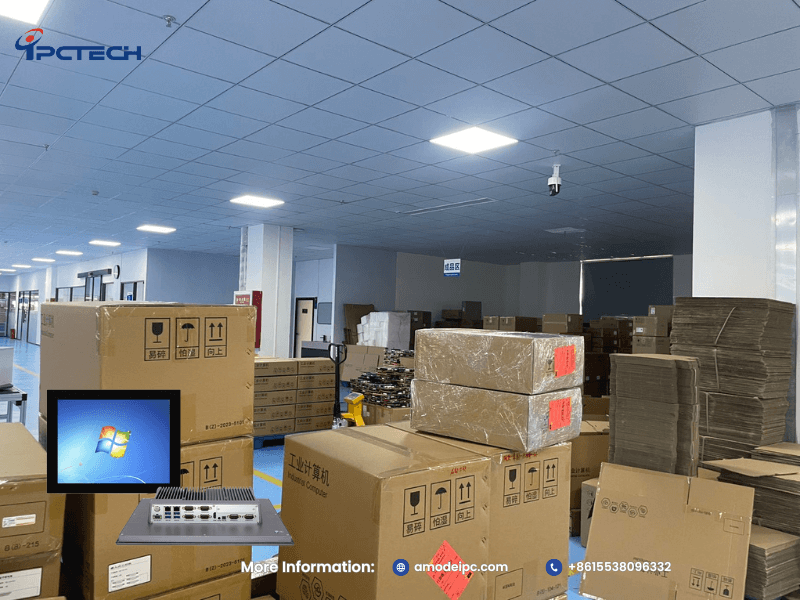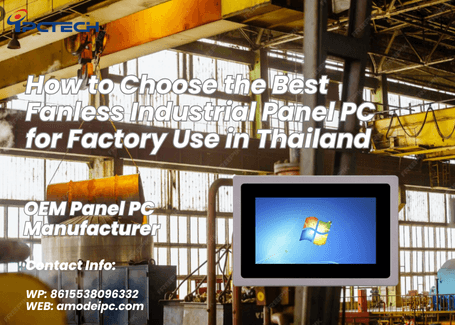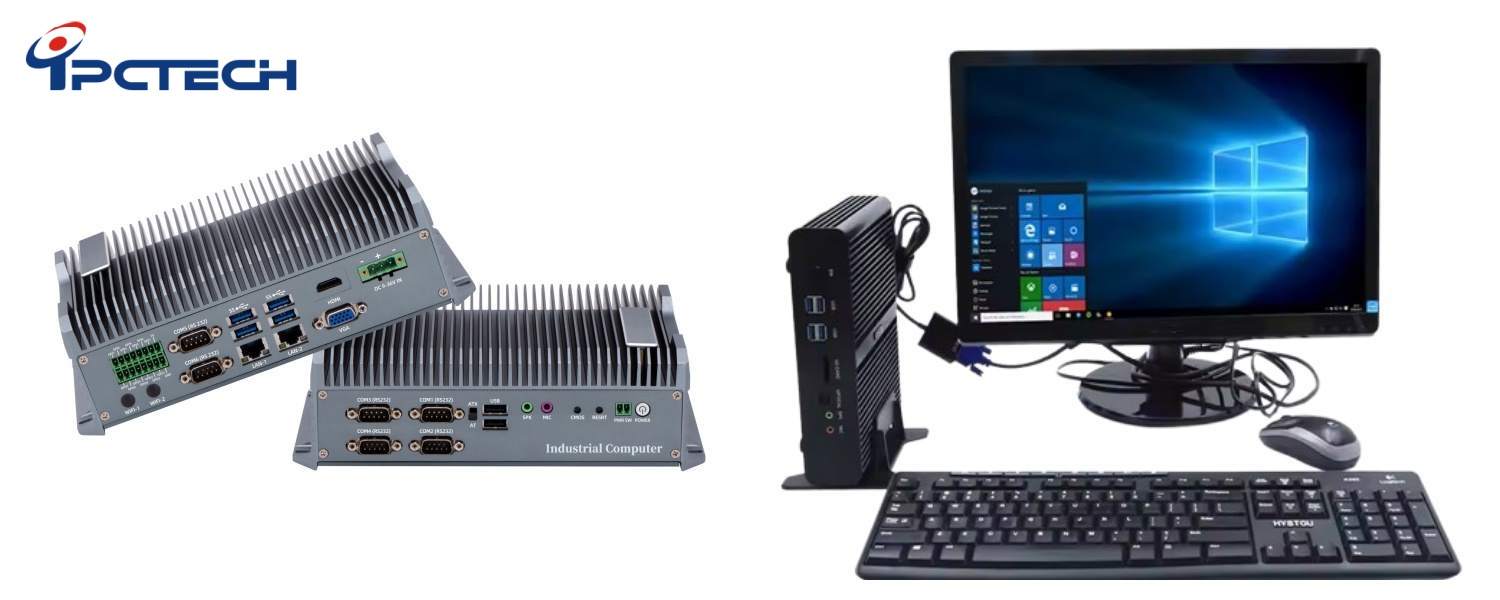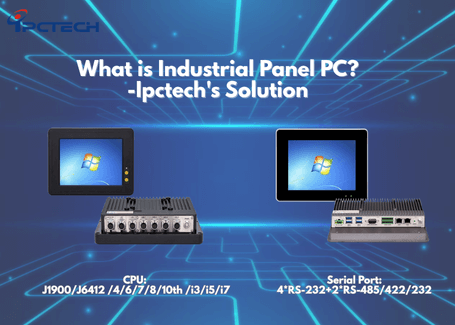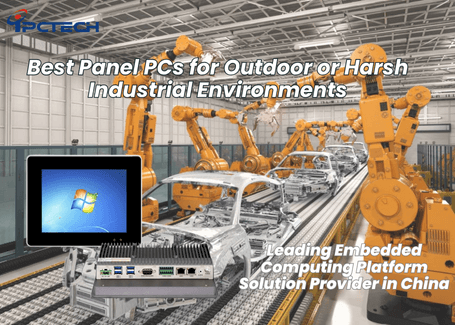How to Choose the Perfect Industrial Panel PC in 2025
2025-08-15
In the rapid development of industrial automation, industrial tablets have become the core terminals for connecting devices, transmitting data, and achieving intelligent control. However, the complexity and diversity of industrial environments make the selection process far more complex than that of ordinary consumer electronics. From high-temperature and high-humidity production facilities to stormy outdoor scenarios, from simple data collection to complex machine vision analysis, the requirements for equipment vary widely across different scenarios. However, there is a wide variety of industrial tablet products in the market with significant differences in performance parameters. Selecting the model that best meets a company's specific needs from among many industrial pcs panel products has become a major challenge for many procurement professionals.
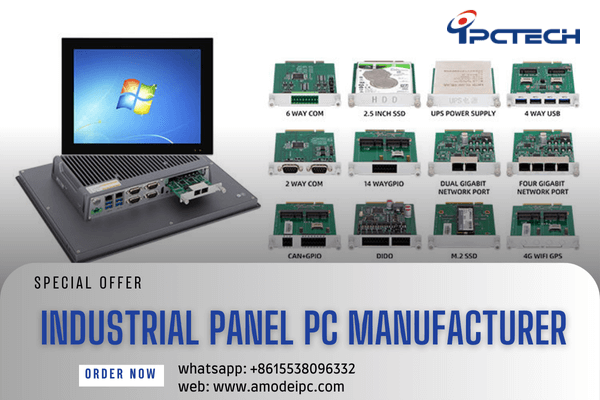
The operational environments and task requirements vary significantly across different industries. Only by clearly defining the operational scenarios and core functional needs of the equipment can we ensure its stable operation and maximum performance in complex environments.
In automotive welding, mechanical processing, and other manufacturing scenarios, industrial tablet computers primarily handle tasks such as production line monitoring, equipment control, and data recording. Typical challenges in such environments include continuous mechanical vibrations, pervasive metal dust, intense temperature fluctuations (such as welding shop temperatures often exceeding 40°C), and strong electromagnetic interference.
Therefore, lndustrical computer PC devices must possess three core characteristics:
Operating temperature range: The operating temperature range must be covered from -20℃ to 60℃ to ensure normal startup and operation in workshops with significant temperature differences between winter and summer;
Vibration resistance: Passed rigorous vibration tests to prevent internal components from loosening and detaching due to prolonged vibrations;
High protection rating: At least meets IP65 protection standards to achieve complete dust protection and withstand low-pressure water sprays, preventing coolant and oil spills from damaging the motherboard.
In smart warehouses and logistics centers, industrial tablets are primarily used in handheld or vehicle-mounted forms for barcode scanning, inventory counting, and order processing.
These scenarios focus on the requirements for equipment:
Lightweight design: convenient for staff to hold for extended periods, reducing fatigue;
Long-lasting battery: supports continuous operation for over 8 hours, avoiding frequent charging that could affect efficiency;
Special Touch Adaptation: The screen must support glove-wearing operations and multi-touch to ensure precise responses to commands such as sliding and scaling during rapid sorting.
Outdoor and traffic scenarios: Weather resistance determines lifespan
In outdoor scenarios such as highway surveillance and smart transportation hubs, equipment must confront extreme weather conditions like direct sunlight, rain, snow, and frost. At this point, industrial panel PCs for high-brightness displays became essential to ensure clear data visibility in strong light; they also required UV protection and corrosion-resistant coatings to slow down the aging of the casing and guarantee the equipment's lifespan in open environments.
The performance of industrial panel PCs directly impacts their efficiency and stability in processing tasks. When selecting a model, it is essential to focus on core parameters such as the processor, memory, storage, and display to ensure the chosen panel computer meets the business requirements of the enterprise.
The processor, as the core of an industrial panel PC, plays a crucial role in its performance. Different application scenarios have varying requirements for processor performance. For simple human-machine interaction and data collection tasks, low-power ARM architecture processors can meet the needs, as they offer advantages such as low power consumption and minimal heat dissipation, making them suitable for long-term stable operation. However, for scenarios requiring complex data processing, image analysis, and multi-tasking (such as machine vision inspection and industrial IoT gateways), a more powerful processor must be selected to ensure the device can respond quickly and efficiently process large amounts of data.
Memory and storage capacity are also critical factors affecting the operating speed of industrial touchscreen PCs.Insufficient memory capacity can lead to device lag and reduced multitasking capabilities. Generally, devices used for basic data collection and monitoring can be equipped with 2GB to 4GB of memory, while devices running complex industrial software or performing big data analysis require 8GB or more of memory. For storage, it is recommended to prioritize industrial-grade solid-state drives (SSDs). Compared to traditional mechanical hard drives, SSDs offer advantages such as faster read/write speeds, better shock resistance, and lower power consumption, effectively improving system boot times and data access efficiency. Storage capacity should be selected based on actual business needs. For basic applications, 64GB is sufficient, while for scenarios requiring storage of large amounts of historical data or running large software applications, 128GB or more is recommended.
The display screen is the core interface for human-machine interaction in industrial panel computers, and its quality directly impacts operational experience and data read efficiency. First, screen size should be considered, with selection based on installation space and operational convenience. IPCTECH offers industrial panel PCs in various sizes, with smaller screens suitable for space-constrained environments and larger screens more convenient for data viewing and operation. Second, screen resolution is important, as higher resolution allows for more content display and clearer images. Additionally, touch technology is crucial. The mainstream options are resistive touch and capacitive touch. Resistive touch supports glove operation and stylus input, making it suitable for dusty environments or scenarios requiring precise clicks; capacitive touch offers higher sensitivity and multi-touch functionality, providing a smoother user experience and is ideal for scenarios requiring quick swiping, zooming, and other operations.
Industrial environments are filled with potential threats such as dust, moisture, vibration, and electromagnetic interference. The protective performance and reliability of equipment directly determine their lifespan and maintenance costs, making them crucial factors to consider when selecting.
Protection class: Precisely matched by environmental risk
The protection rating (IP code) is a key indicator of a device's ability to withstand external environmental influences, consisting of two digits: the first indicates the dust protection rating (0-6), and the second indicates the water resistance rating (0-9K).When selecting, choose based on environmental risks:
Ordinary industrial scenarios must achieve at least an IP65 rating to ensure that the equipment is completely dust-proof and resistant to low-pressure water jets;
In environments with extremely high dust concentrations or significant liquid splashes (such as food processing plants or car wash equipment control systems), IP66-grade equipment must be selected to further enhance waterproof and dustproof capabilities and protect internal components from damage.
Vibration Resistance and Impact Resistance: Addressing Challenges in Mechanical Environments
In scenarios such as machinery operation and vehicle transportation, equipment may experience continuous vibrations or sudden shocks. If vibration resistance is insufficient, it can lead to loose internal components and interface detachment, affecting normal operation. Therefore, it is necessary to select products that meet the relevant vibration impact test standards to ensure stable operation of the equipment at the specified vibration frequency and impact strength.
Electromagnetic Compatibility (EMC): Resisting Interference from Complex Electromagnetic Environments
Industrial equipment such as motors, inverters, relays, and other equipment can generate strong electromagnetic interference during operation. If the equipment's EMC performance is inadequate, it may lead to signal interruptions, data loss, or even system crashes. IPCTECH industrial panel PCS equipment is certified by CCC, CE, and ROHS, ensuring its proper functioning in complex electromagnetic environments.
Mean Time Between Failures (MTBF): a quantitative indicator of reliability
MTBF is the core metric for assessing equipment reliability, with higher values indicating better reliability and a lower probability of failure. When selecting products with a high MTBF value, priority should be given to reducing production disruptions and maintenance costs caused by equipment failures.
Industrial tablets need to be connected to various industrial devices, sensors, peripherals, and more. Adequate interfaces and good scalability are crucial for ensuring flexible adaptation to different scenarios.
Hardware interface: Meeting current and future connectivity needs
Interface configuration should be chosen based on actual connection requirements, with common interfaces including:
USB port: used to connect peripherals such as mice, keyboards, USB flash drives, barcode scanners, etc.;
Ethernet port: enables wired network connectivity, supports data transmission, and enables remote control;
RS232/RS485 Interface: Connecting PLCs, sensors, inverters, and other industrial equipment;
HDMI Interface: External Display Extends Display Content.
When selecting, ensure that the number and type of interfaces meet both current and future connection requirements, thereby avoiding disruptions to equipment normal operation due to insufficient interfaces.
With the development of industrial IoT, wireless connectivity has become a crucial feature of devices. Wi-Fi and Bluetooth support devices can easily connect to other wireless terminals, freeing them from wired constraints and enhancing deployment flexibility.
For scenarios requiring remote data transmission and monitoring, industrial tablets equipped with 4G/5G modules can be chosen to achieve high-speed wide-area network connectivity, ensuring real-time data upload to the cloud platform.
Software scalability
Scalability at the software level is equally important. Choosing devices that support mainstream operating systems (such as Windows, Linux, Android, etc.) can better integrate various industrial software and applications, reduce system integration difficulties, and leave room for future feature upgrades.
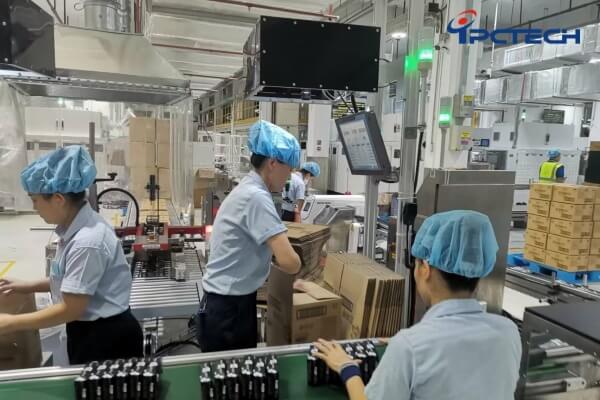
In recent years, with the widespread adoption of automation and artificial intelligence technologies, technology has become deeply integrated into almost every industry. IPCTECH will continue to leverage these emerging technologies to reduce costs and optimize operations, while the rapidly changing business environment has created new opportunities for technology implementation.
When selecting an industrial panel PC, the core criteria should focus on three key points: First, the device must be capable of withstanding complex and demanding industrial environments, including high temperatures, high humidity, dust, vibration, and electromagnetic interference, while maintaining stable performance; Second, the functional configuration must precisely align with actual production requirements, ensuring seamless integration with business scenarios from data processing capabilities to interface compatibility; Third, it is essential to choose a reputable supplier with deep technical expertise and a comprehensive after-sales support system to ensure long-term supply stability and timely technical support.
As a professional manufacturer of industrial tablet PCs, IPCTECH is committed to meeting the business needs of industrial panel PCs, providing robust support for enterprise production operations and smart upgrades.
2025 Top Recommended Industrial Panel PCs Wholesale

P8000 Series industrial panel pc-IPCTECH
| Model | Screen | Resolution | CPU | I/Ointerfaces | System |
| QY-P8070 | 7 inch LED screen |
800*480 | Intel Celeron and Core 4/6/7/8/10th-i3/i5/i7 | 2*RJ-45, 4*USB, 6*COM Ports | Windows 7 / 10 / 11 and Linux |
| QY-P8080 | 8 inch LED screen |
800*600 |
Intel Celeron and Core 4/6/7/8/10th-i3/i5/i7 | 2*RJ-45, 4*USB, 6*COM Ports | Windows 7 / 10 / 11 and Linux |
| QY-P8101 | 10.1 inch LED screen |
1280*800 | Intel Celeron and Core 4/6/7/8/10th-i3/i5/i7 | 2*RJ-45, 4*USB, 6*COM Ports |
Windows 7 / 10 / 11 and Linux |
| QY-P8104 | 10.4 inch LED screen |
1024*768 | Intel Celeron and Core 4/6/7/8/10th-i3/i5/i7 | 2*RJ-45, 4*USB, 6*COM,1*HDMI,1*Expansion Card | Windows 7 / 10 / 11 and Linux |
Considerations when choosing an industrial panel PC
Match the basic standards for industrial panel PCs
The operational environments and task requirements vary significantly across different industries. Only by clearly defining the operational scenarios and core functional needs of the equipment can we ensure its stable operation and maximum performance in complex environments.
Manufacturing Workshop: Durability and Resistance Are at the Core
In automotive welding, mechanical processing, and other manufacturing scenarios, industrial tablet computers primarily handle tasks such as production line monitoring, equipment control, and data recording. Typical challenges in such environments include continuous mechanical vibrations, pervasive metal dust, intense temperature fluctuations (such as welding shop temperatures often exceeding 40°C), and strong electromagnetic interference.
Therefore, lndustrical computer PC devices must possess three core characteristics:
Operating temperature range: The operating temperature range must be covered from -20℃ to 60℃ to ensure normal startup and operation in workshops with significant temperature differences between winter and summer;
Vibration resistance: Passed rigorous vibration tests to prevent internal components from loosening and detaching due to prolonged vibrations;
High protection rating: At least meets IP65 protection standards to achieve complete dust protection and withstand low-pressure water sprays, preventing coolant and oil spills from damaging the motherboard.
Warehousing and logistics sector: Mobile battery life is crucial
In smart warehouses and logistics centers, industrial tablets are primarily used in handheld or vehicle-mounted forms for barcode scanning, inventory counting, and order processing.
These scenarios focus on the requirements for equipment:
Lightweight design: convenient for staff to hold for extended periods, reducing fatigue;
Long-lasting battery: supports continuous operation for over 8 hours, avoiding frequent charging that could affect efficiency;
Special Touch Adaptation: The screen must support glove-wearing operations and multi-touch to ensure precise responses to commands such as sliding and scaling during rapid sorting.
Outdoor and traffic scenarios: Weather resistance determines lifespan
In outdoor scenarios such as highway surveillance and smart transportation hubs, equipment must confront extreme weather conditions like direct sunlight, rain, snow, and frost. At this point, industrial panel PCs for high-brightness displays became essential to ensure clear data visibility in strong light; they also required UV protection and corrosion-resistant coatings to slow down the aging of the casing and guarantee the equipment's lifespan in open environments.
Key Factors in Evaluating the Operational Efficiency of Industrial PC Solutions
The performance of industrial panel PCs directly impacts their efficiency and stability in processing tasks. When selecting a model, it is essential to focus on core parameters such as the processor, memory, storage, and display to ensure the chosen panel computer meets the business requirements of the enterprise.
The processor, as the core of an industrial panel PC, plays a crucial role in its performance. Different application scenarios have varying requirements for processor performance. For simple human-machine interaction and data collection tasks, low-power ARM architecture processors can meet the needs, as they offer advantages such as low power consumption and minimal heat dissipation, making them suitable for long-term stable operation. However, for scenarios requiring complex data processing, image analysis, and multi-tasking (such as machine vision inspection and industrial IoT gateways), a more powerful processor must be selected to ensure the device can respond quickly and efficiently process large amounts of data.
Memory and storage capacity are also critical factors affecting the operating speed of industrial touchscreen PCs.Insufficient memory capacity can lead to device lag and reduced multitasking capabilities. Generally, devices used for basic data collection and monitoring can be equipped with 2GB to 4GB of memory, while devices running complex industrial software or performing big data analysis require 8GB or more of memory. For storage, it is recommended to prioritize industrial-grade solid-state drives (SSDs). Compared to traditional mechanical hard drives, SSDs offer advantages such as faster read/write speeds, better shock resistance, and lower power consumption, effectively improving system boot times and data access efficiency. Storage capacity should be selected based on actual business needs. For basic applications, 64GB is sufficient, while for scenarios requiring storage of large amounts of historical data or running large software applications, 128GB or more is recommended.
The display screen is the core interface for human-machine interaction in industrial panel computers, and its quality directly impacts operational experience and data read efficiency. First, screen size should be considered, with selection based on installation space and operational convenience. IPCTECH offers industrial panel PCs in various sizes, with smaller screens suitable for space-constrained environments and larger screens more convenient for data viewing and operation. Second, screen resolution is important, as higher resolution allows for more content display and clearer images. Additionally, touch technology is crucial. The mainstream options are resistive touch and capacitive touch. Resistive touch supports glove operation and stylus input, making it suitable for dusty environments or scenarios requiring precise clicks; capacitive touch offers higher sensitivity and multi-touch functionality, providing a smoother user experience and is ideal for scenarios requiring quick swiping, zooming, and other operations.
The core of ensuring long-term operation of industrial panel PCs
Industrial environments are filled with potential threats such as dust, moisture, vibration, and electromagnetic interference. The protective performance and reliability of equipment directly determine their lifespan and maintenance costs, making them crucial factors to consider when selecting.
Protection class: Precisely matched by environmental risk
The protection rating (IP code) is a key indicator of a device's ability to withstand external environmental influences, consisting of two digits: the first indicates the dust protection rating (0-6), and the second indicates the water resistance rating (0-9K).When selecting, choose based on environmental risks:
Ordinary industrial scenarios must achieve at least an IP65 rating to ensure that the equipment is completely dust-proof and resistant to low-pressure water jets;
In environments with extremely high dust concentrations or significant liquid splashes (such as food processing plants or car wash equipment control systems), IP66-grade equipment must be selected to further enhance waterproof and dustproof capabilities and protect internal components from damage.
Vibration Resistance and Impact Resistance: Addressing Challenges in Mechanical Environments
In scenarios such as machinery operation and vehicle transportation, equipment may experience continuous vibrations or sudden shocks. If vibration resistance is insufficient, it can lead to loose internal components and interface detachment, affecting normal operation. Therefore, it is necessary to select products that meet the relevant vibration impact test standards to ensure stable operation of the equipment at the specified vibration frequency and impact strength.
Electromagnetic Compatibility (EMC): Resisting Interference from Complex Electromagnetic Environments
Industrial equipment such as motors, inverters, relays, and other equipment can generate strong electromagnetic interference during operation. If the equipment's EMC performance is inadequate, it may lead to signal interruptions, data loss, or even system crashes. IPCTECH industrial panel PCS equipment is certified by CCC, CE, and ROHS, ensuring its proper functioning in complex electromagnetic environments.
Mean Time Between Failures (MTBF): a quantitative indicator of reliability
MTBF is the core metric for assessing equipment reliability, with higher values indicating better reliability and a lower probability of failure. When selecting products with a high MTBF value, priority should be given to reducing production disruptions and maintenance costs caused by equipment failures.
Interfaces and Expandability
Industrial tablets need to be connected to various industrial devices, sensors, peripherals, and more. Adequate interfaces and good scalability are crucial for ensuring flexible adaptation to different scenarios.
Hardware interface: Meeting current and future connectivity needs
Interface configuration should be chosen based on actual connection requirements, with common interfaces including:
USB port: used to connect peripherals such as mice, keyboards, USB flash drives, barcode scanners, etc.;
Ethernet port: enables wired network connectivity, supports data transmission, and enables remote control;
RS232/RS485 Interface: Connecting PLCs, sensors, inverters, and other industrial equipment;
HDMI Interface: External Display Extends Display Content.
When selecting, ensure that the number and type of interfaces meet both current and future connection requirements, thereby avoiding disruptions to equipment normal operation due to insufficient interfaces.
Wireless connectivity
With the development of industrial IoT, wireless connectivity has become a crucial feature of devices. Wi-Fi and Bluetooth support devices can easily connect to other wireless terminals, freeing them from wired constraints and enhancing deployment flexibility.
For scenarios requiring remote data transmission and monitoring, industrial tablets equipped with 4G/5G modules can be chosen to achieve high-speed wide-area network connectivity, ensuring real-time data upload to the cloud platform.
Software scalability
Scalability at the software level is equally important. Choosing devices that support mainstream operating systems (such as Windows, Linux, Android, etc.) can better integrate various industrial software and applications, reduce system integration difficulties, and leave room for future feature upgrades.
Choose Your Industrial Panel Computer Wisely

In recent years, with the widespread adoption of automation and artificial intelligence technologies, technology has become deeply integrated into almost every industry. IPCTECH will continue to leverage these emerging technologies to reduce costs and optimize operations, while the rapidly changing business environment has created new opportunities for technology implementation.
When selecting an industrial panel PC, the core criteria should focus on three key points: First, the device must be capable of withstanding complex and demanding industrial environments, including high temperatures, high humidity, dust, vibration, and electromagnetic interference, while maintaining stable performance; Second, the functional configuration must precisely align with actual production requirements, ensuring seamless integration with business scenarios from data processing capabilities to interface compatibility; Third, it is essential to choose a reputable supplier with deep technical expertise and a comprehensive after-sales support system to ensure long-term supply stability and timely technical support.
As a professional manufacturer of industrial tablet PCs, IPCTECH is committed to meeting the business needs of industrial panel PCs, providing robust support for enterprise production operations and smart upgrades.
Recommended
